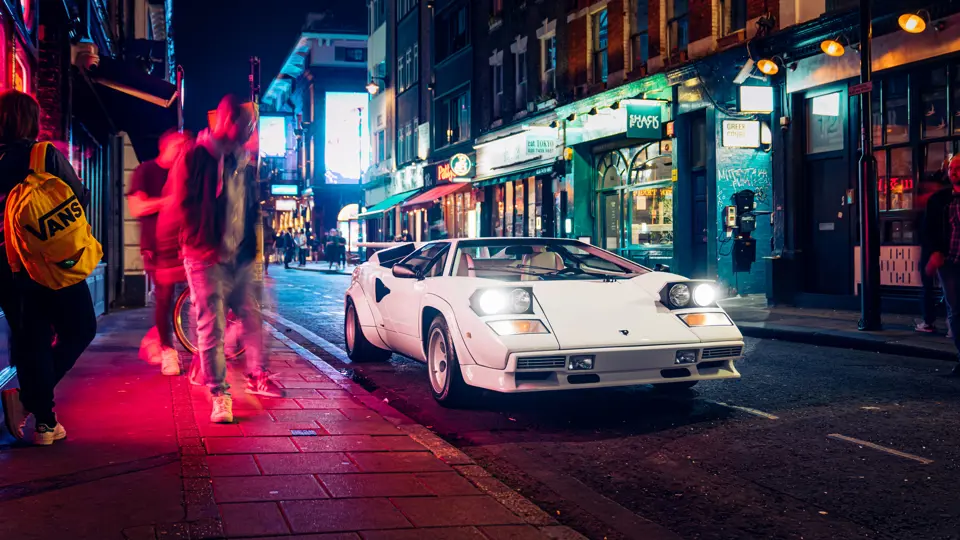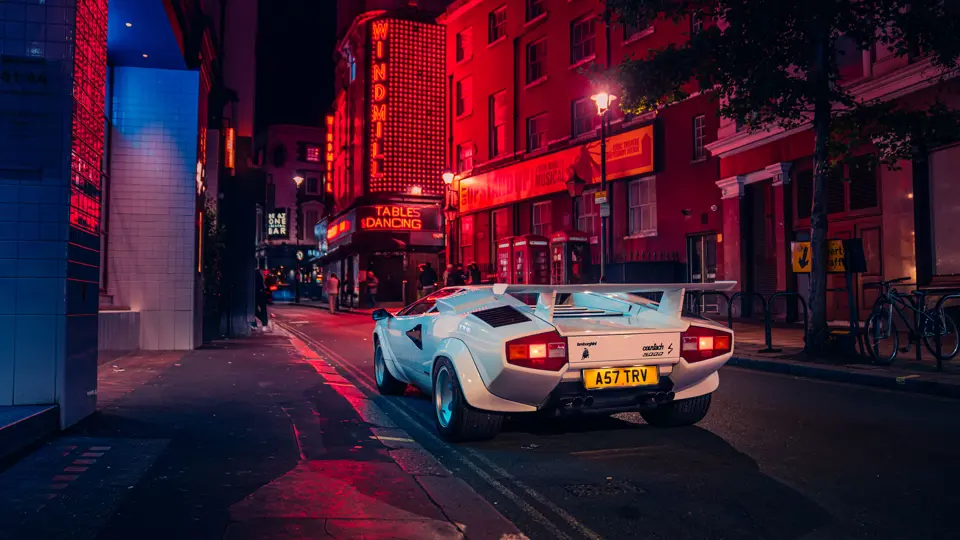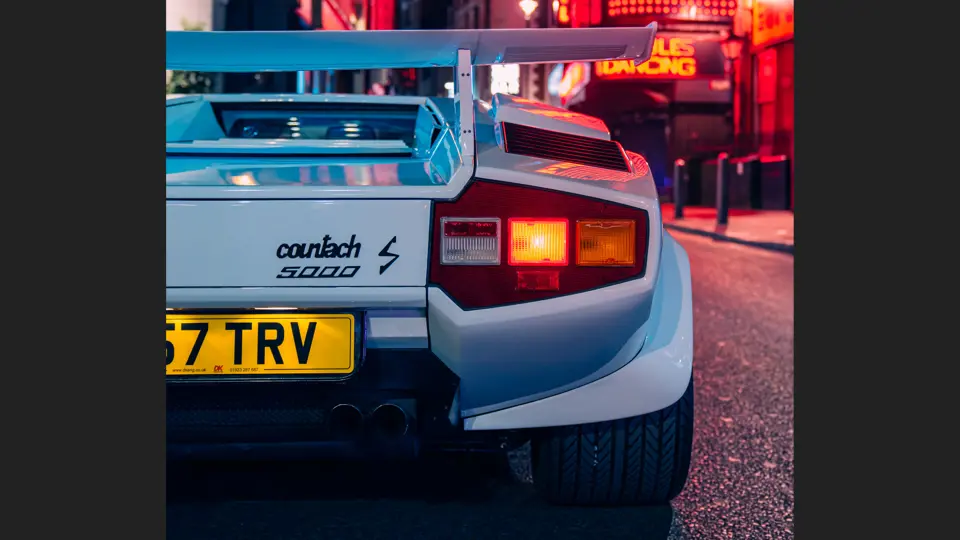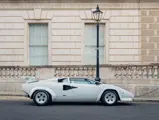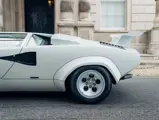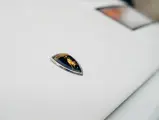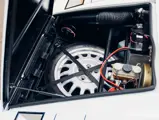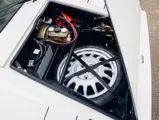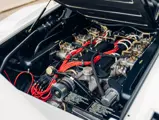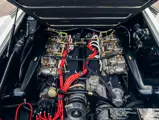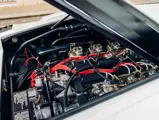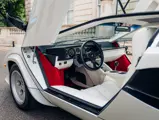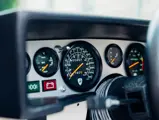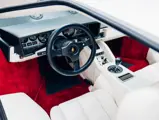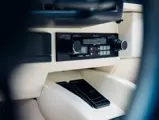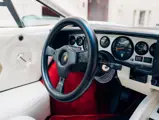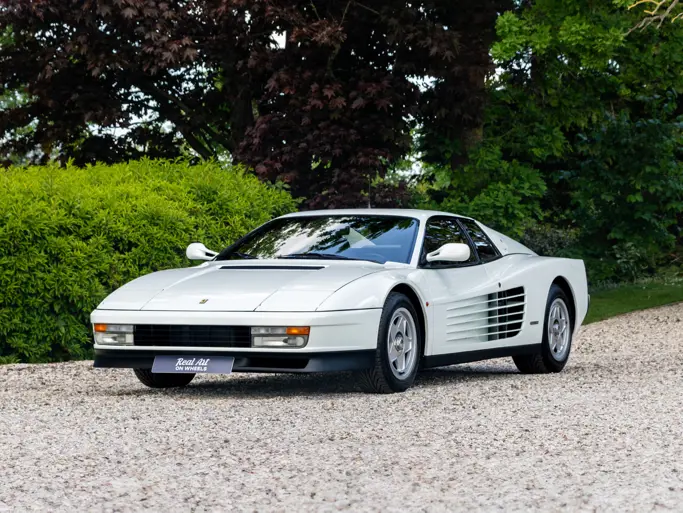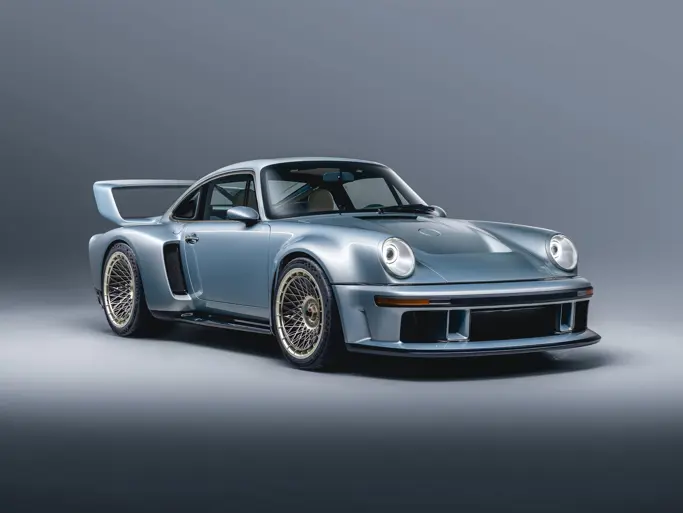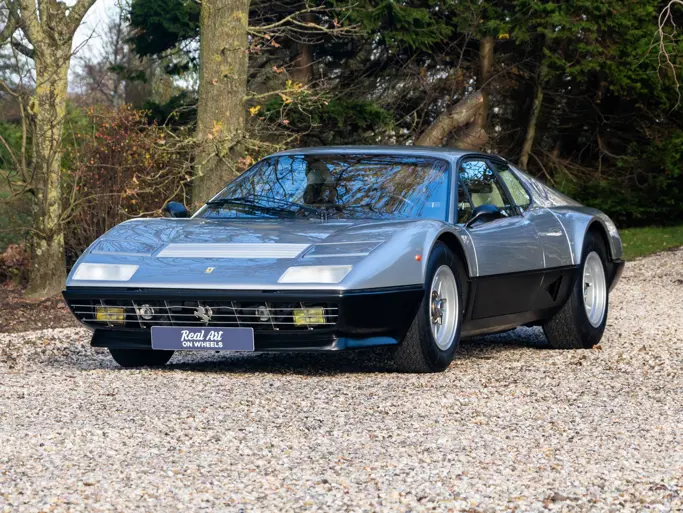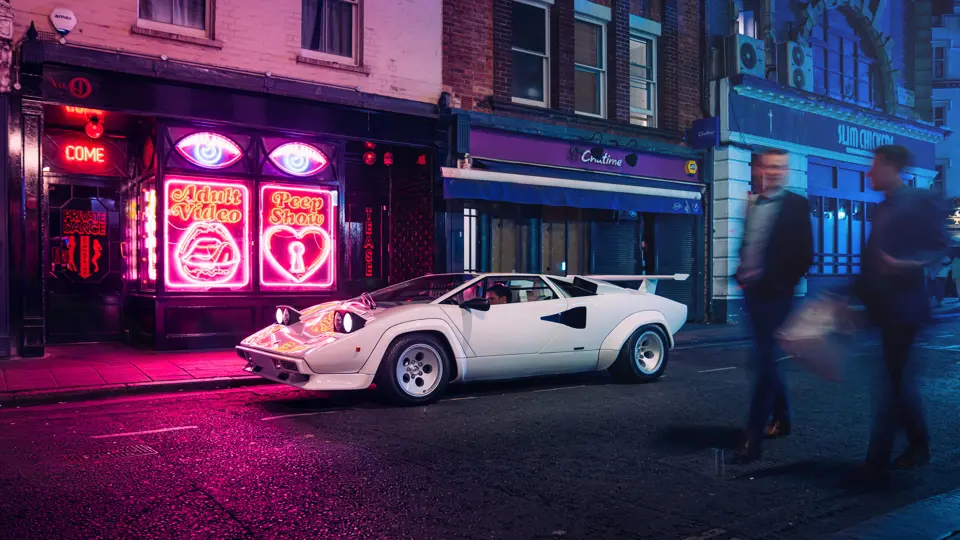
1984 Lamborghini Countach LP5000 S by Bertone
{{lr.item.text}}
$1,061,000 USD | Sold
{{bidding.lot.reserveStatusFormatted}}
- Finished in the desirable pairing of Bianco paintwork over Bianco leather
- Delivered new to Switzerland, later imported into the UK
- Powered by a 4.8-liter V-12 engine fed by six Weber carburetors
- Subject to recommissioning in 2022, with workshop bills exceeding £26,000
- Odometer reads only 5,495 km at the time of cataloguing
With its futuristic styling and universally recognizable wedge shape, the Lamborghini Countach’s outrageous lines belie its standing as a concept that dates back as early as 1970. Designs for the sports car began around halfway through the lifecycle of its predecessor, the timeless Miura, as Ferruccio Lamborghini gave his all to keep up with rival marques—particularly those bearing the Prancing Horse badge from neighbouring Modena, with Ferrari making great strides with its newly introduced 365 GTB/4 “Daytona”. The Sant’Agata marque needed a modern take on its flagship platform, and so the Countach was born.
Taking great inspiration from the mid-mounted V-12 platform that contributed so much to the success of the earlier Miura, the overarching task set to Lamborghini engineers was to ensure that the Countach maximized every ounce of power while securing aerodynamic gains with the sleekest-possible body. Starting life under the code name “LP112”, the project was spearheaded by Paolo Stanzani, who worked alongside Massimo Parenti and test driver Bob Wallace, while the styling brief was handed to Marcello Gandini of the famous Bertone design house. A prototype was shown at the 1971 Geneva International Motor Show, before engineers took an extended return to the drawing board. The first customer cars were not produced for a further three years, with deliveries finally commencing in 1974.
The earliest examples of the Countach were known as the LP 400, and featured a mid-arranged transversely mounted 3.9-liter V-12 engine rated at 375 horsepower. Four years later, the LP400 S delivered reduced power from the same engine, though clothed in more aggressive bodywork with flared arches housing the widest rear tyres ever fitted to a road car. In 1982, Lamborghini introduced the LP5000 S, which brought with it a huge developmental leap in the form of a new longitudinally mounted, 4.8-liter V-12 fed by six Weber carburetors. Just 321 would be built—including the example offered here—with later 5000 QV and 25th Anniversary editions, launched following Patrick Mimran’s takeover of the company, making the greatest contribution to the nameplate’s production numbers.
Emerging from dry storage earlier this year after a prolonged stay with a UK-based keeper, this Countach LP5000 S sports a history of very sparing exercise with just 5,495 km on its odometer at the time of cataloging. Its overall condition, both inside and out, is reflective of its low mileage. Chassis number “ELA12729” is understood to have been completed by the Lamborghini factory in July 1984, finished in Bianco over a matching Bianco leather interior.
The Countach was supplied to its first owner via Codeco S.A., a dealer based in Lausanne, Switzerland. We are informed that the Lamborghini was retained by its original Swiss owner until 2002 before being sold, and later acquired by its third and most recent owner in 2006. The car was brought over to the UK by its long-term keeper, then road registered in February 2009, after which point we are told the car was kept in a collection for around a decade and rarely driven.
Throughout 2022, the car has been subject to recommissioning work by performance car specialist, DK Engineering, based near London, England. Workshop bills exceeded £26,000 and included the strip-cleaning of all six Weber carburetors; the replacement of the master brake cylinder; removal and rebuild of rear driveshafts and boots; adjustment of the timing chain; installation of the correct coolant pipes; and a wheel refurb—further to additional jobs carried out to ensure the smooth running of the Raging Bull’s potent V-12. These invoices are available to view on file, further to a statement from the previous owner to verify that the Lamborghini formed part of their collection, and that despite such sparing use, they upgraded the brakes to a desirable AP Racing set-up. Technicians at the workshop also commented that many components on the underside of the car looked to be original.
Forever a collector car icon that pushed the envelope of both performance and styling—as much today as in period—Lamborghini’s famous “wedge” is a breath-taking design sure to always turn heads. With the LP5000 S considered by enthusiasts to sit in the sweet spot of Countach production, potential buyers needn’t look any further than this well presented white-on-white example, no less striking in person than it would have been in 1984. After all, suitors need not continue to dream about the archetypal poster image from the bedroom wall when it could realistically be parked in the garage.


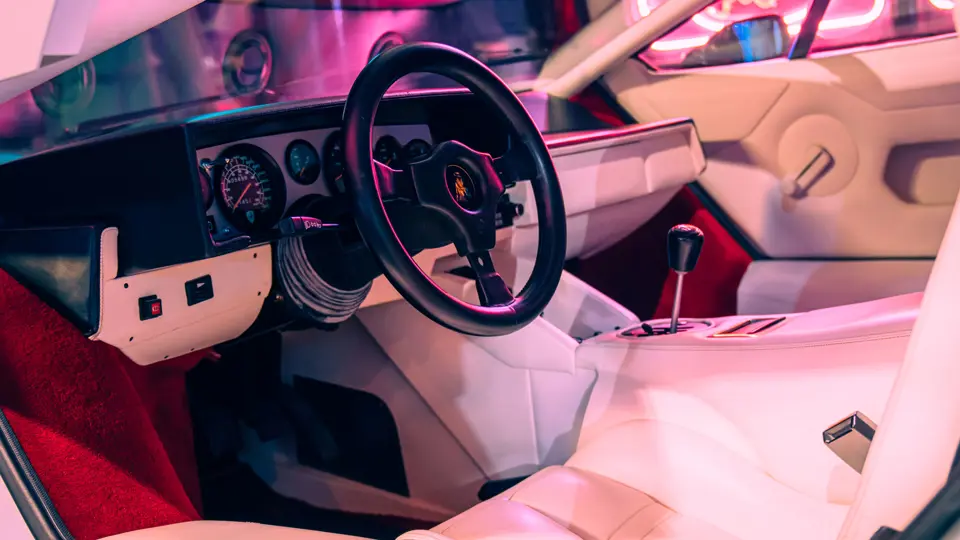

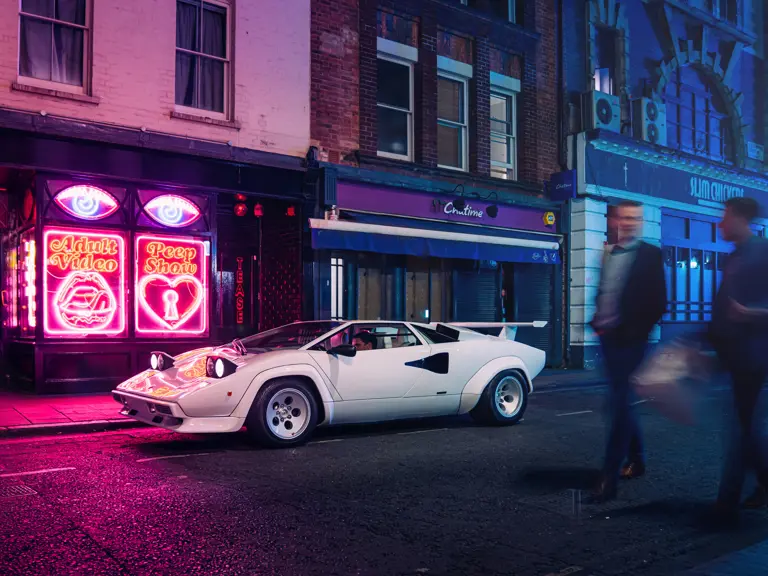
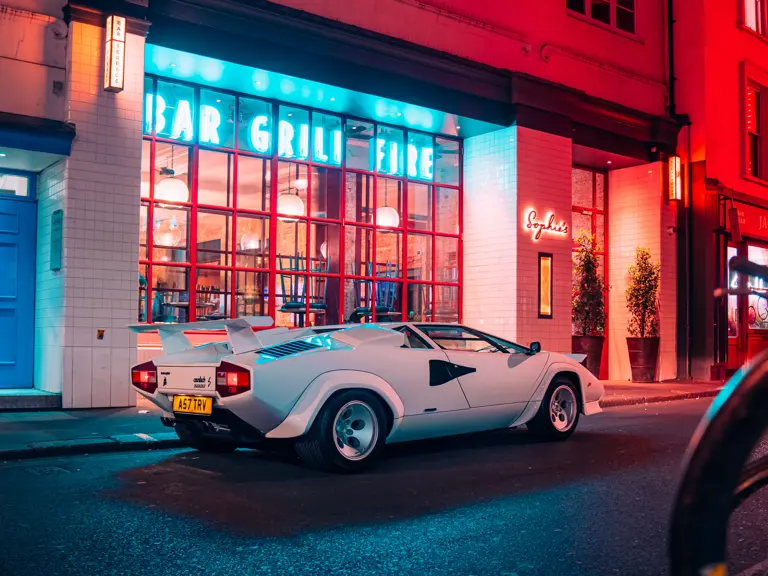
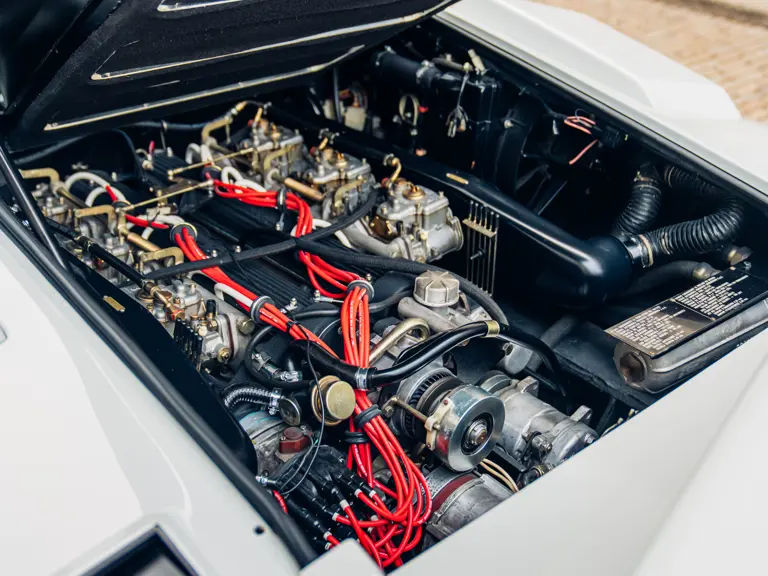
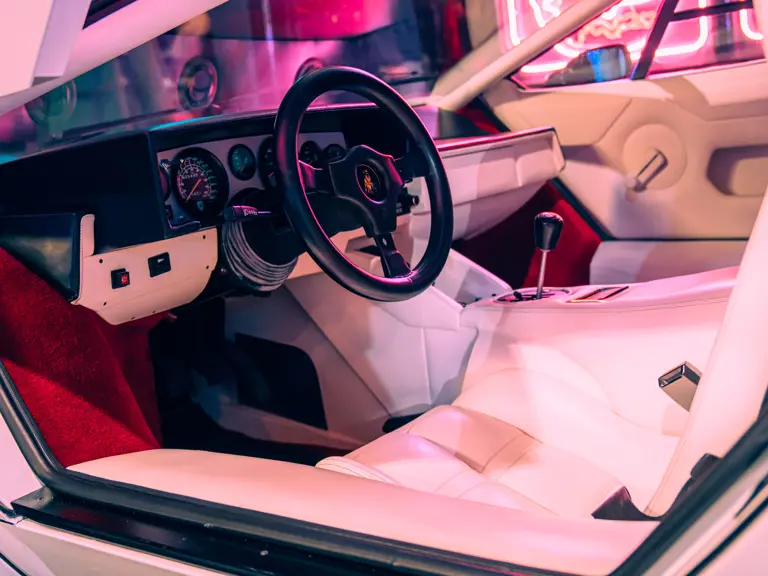
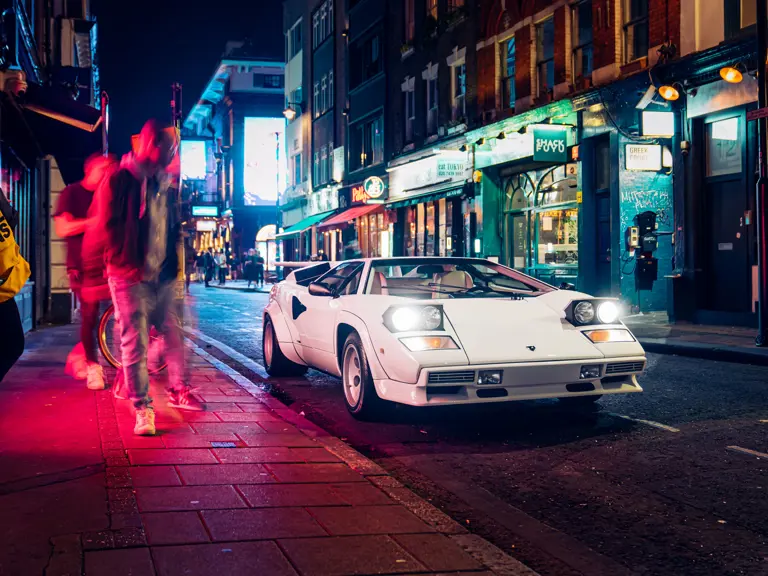


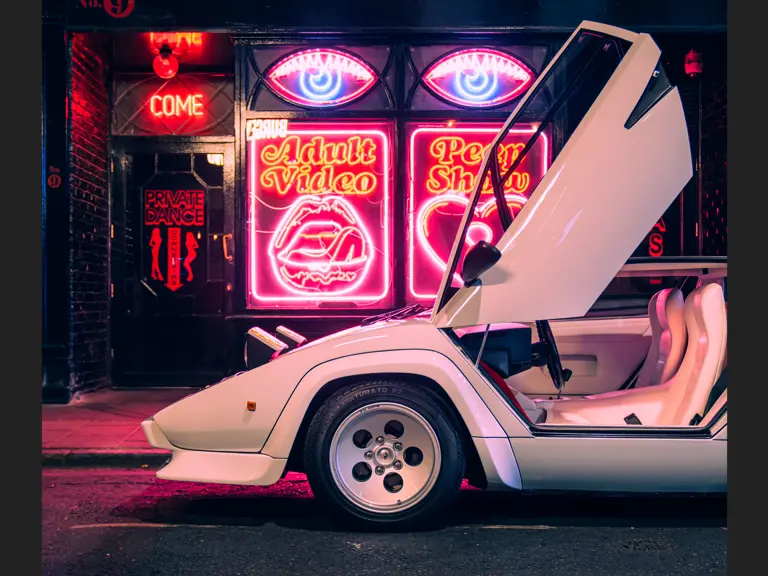
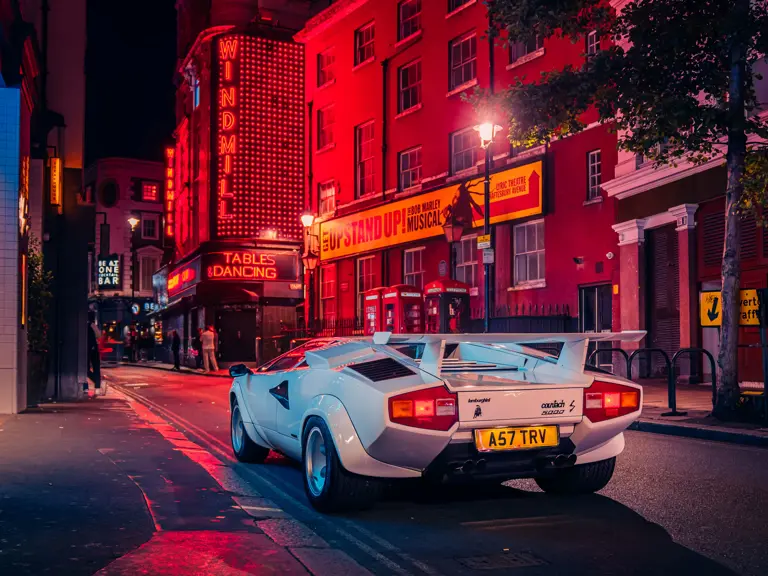
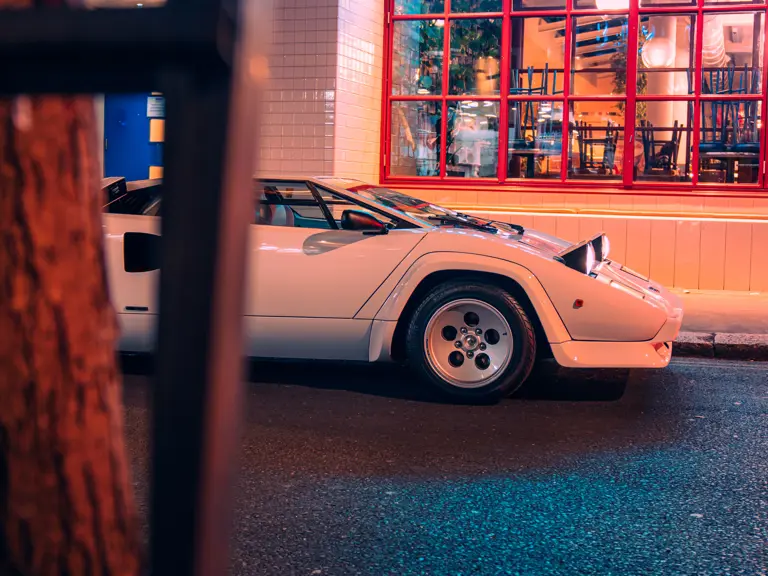
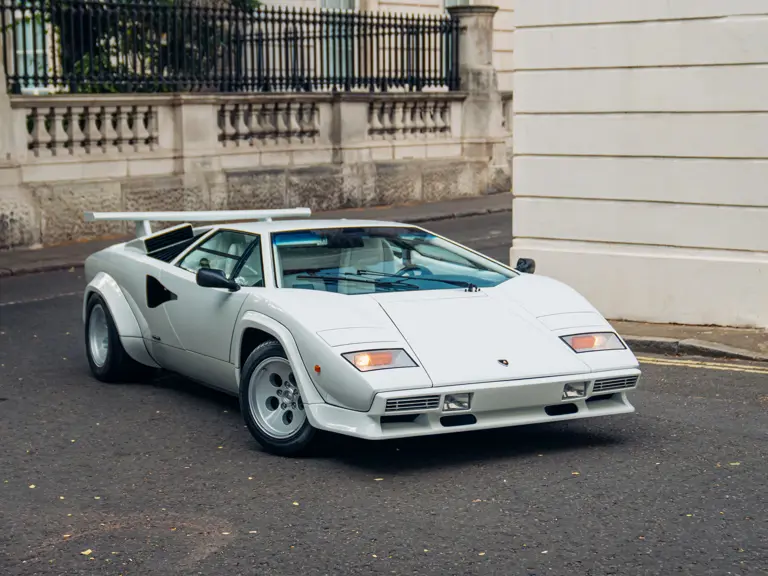
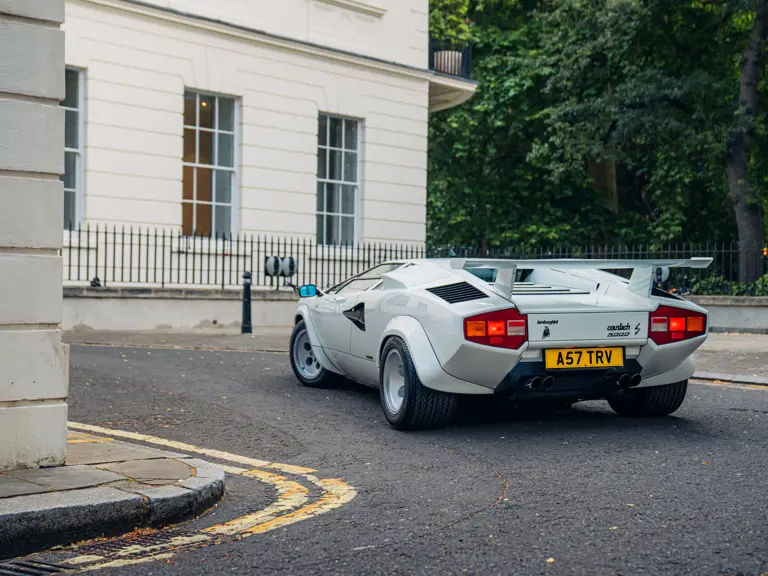
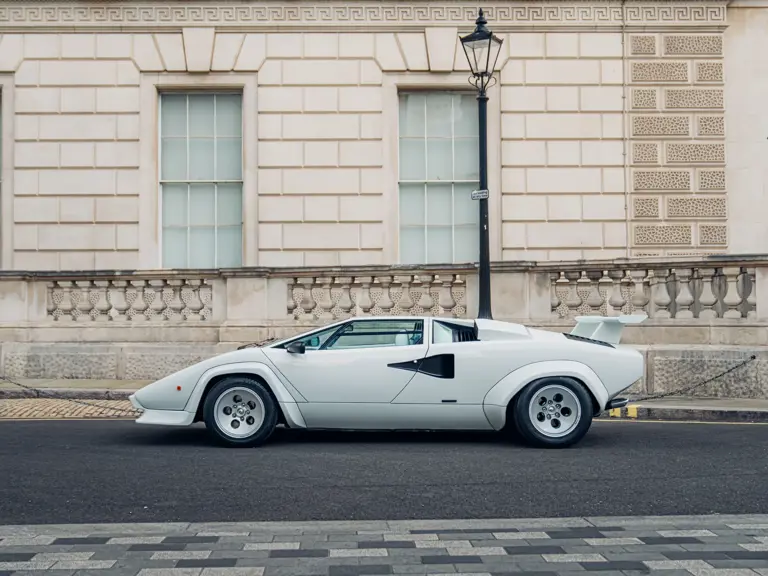
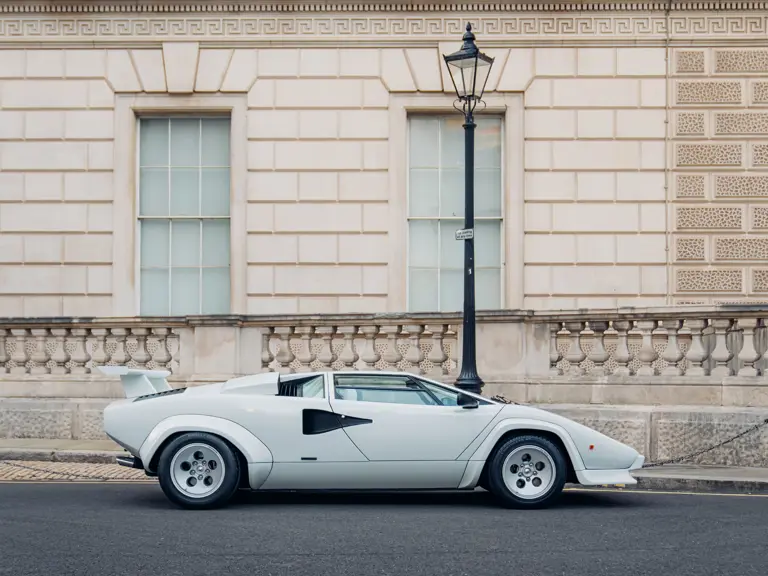
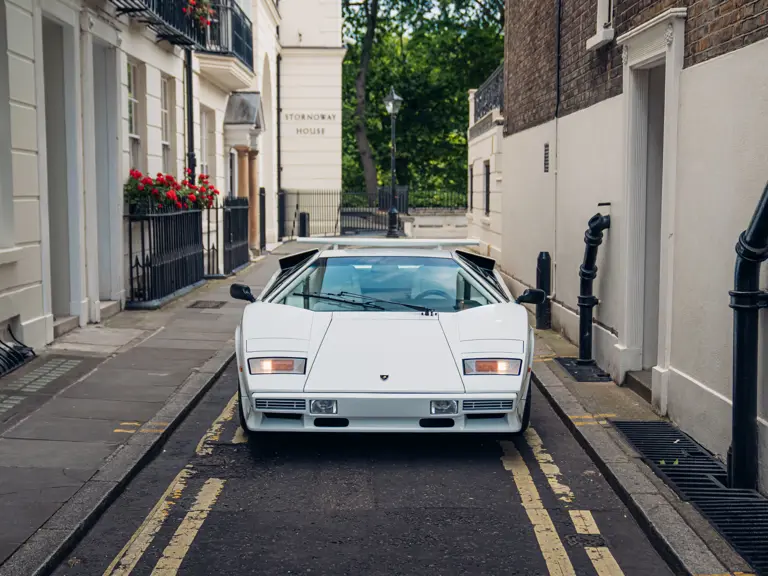
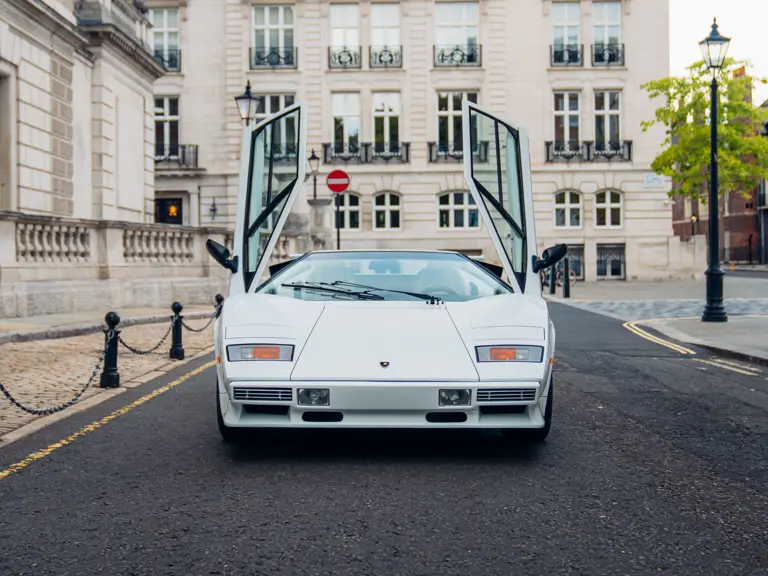
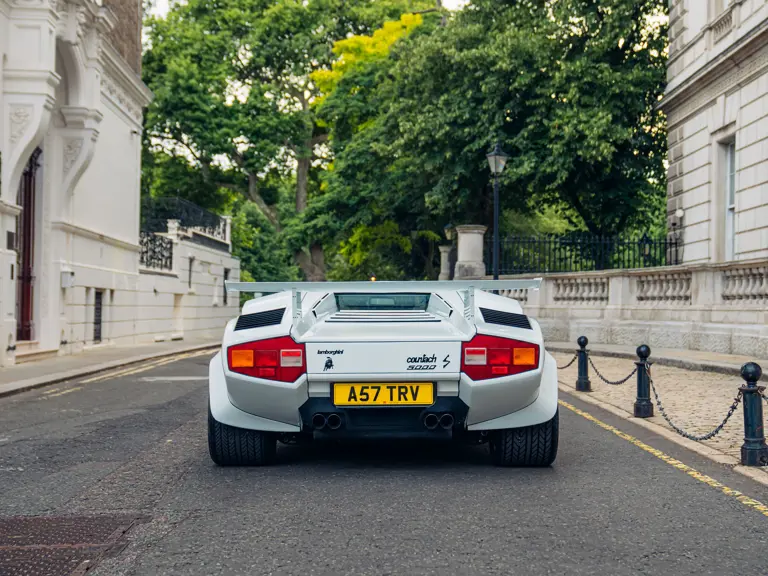
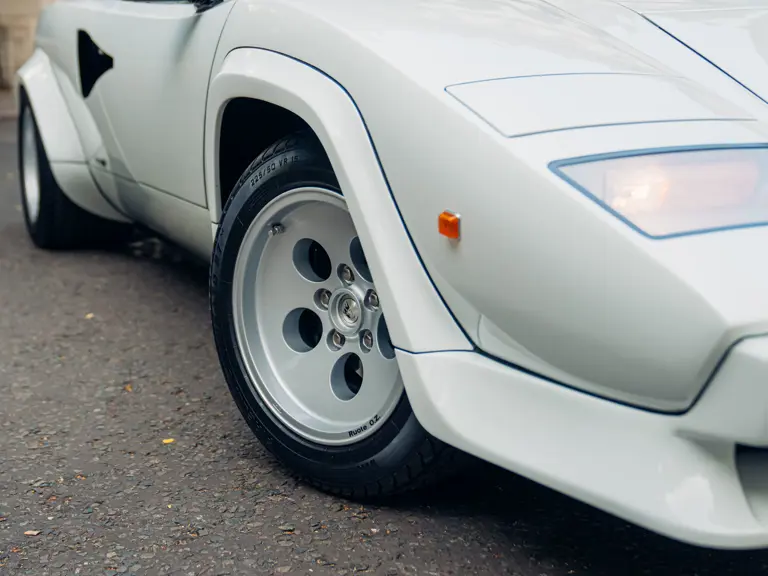
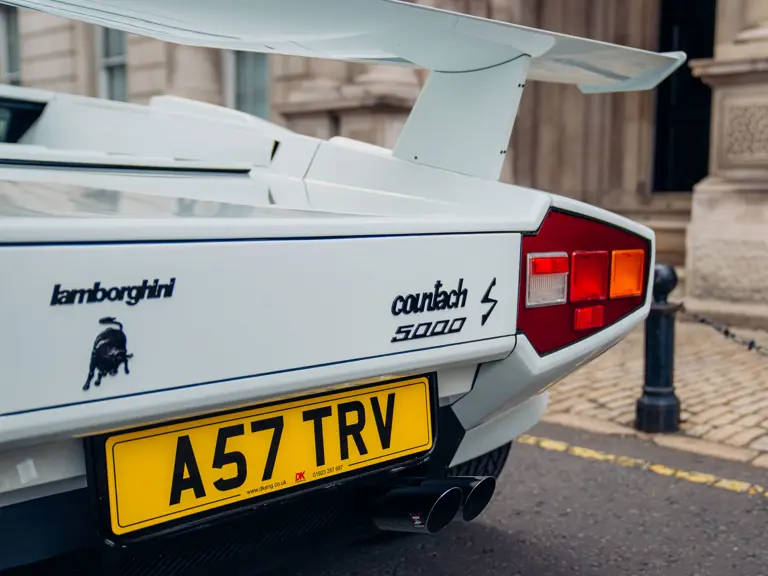
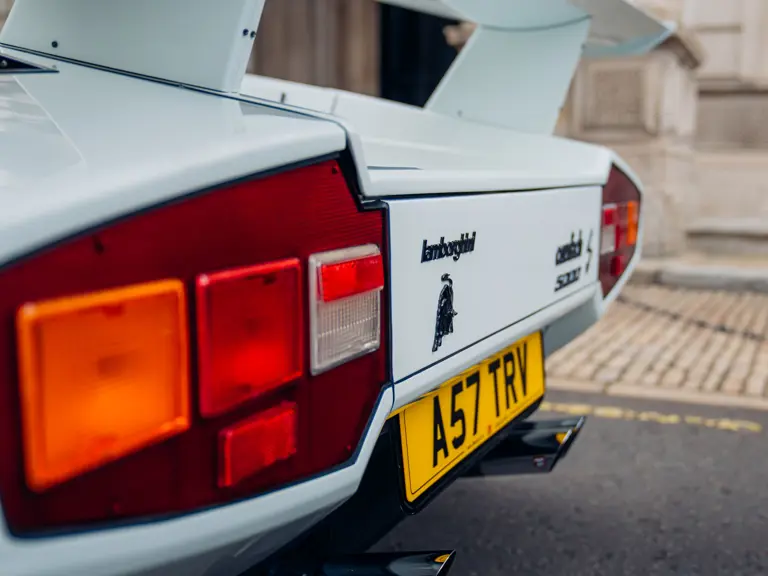
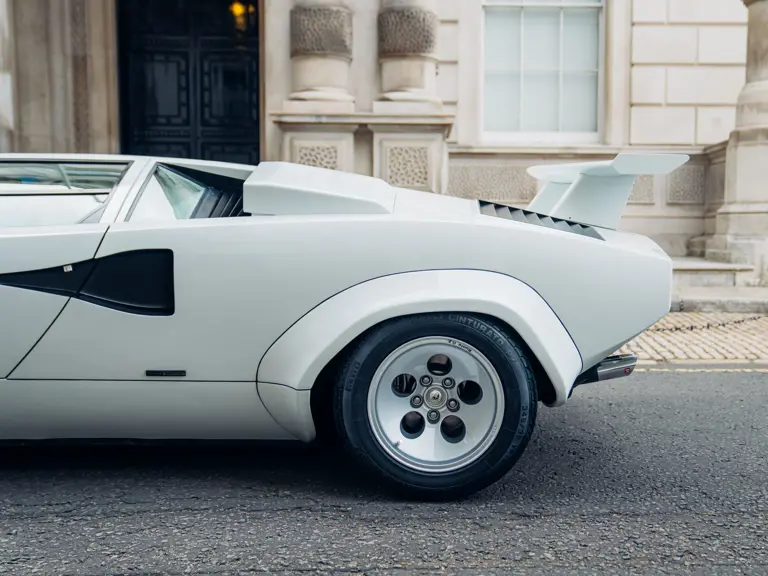
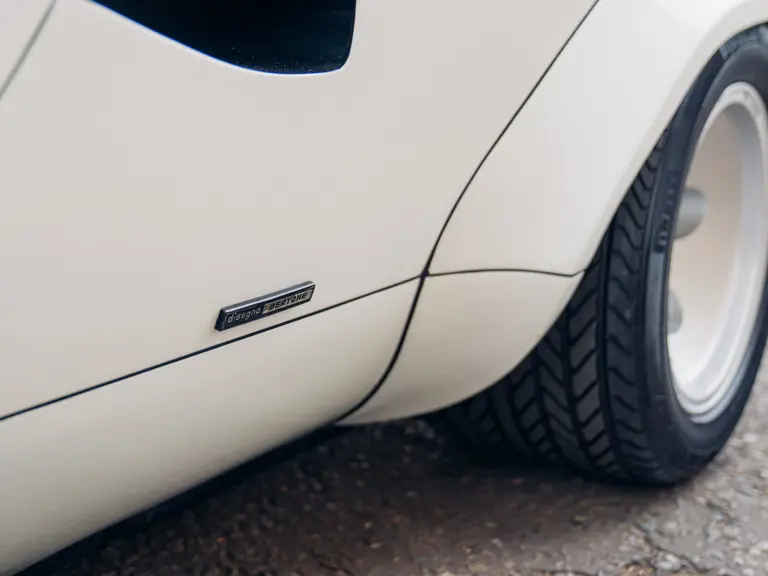
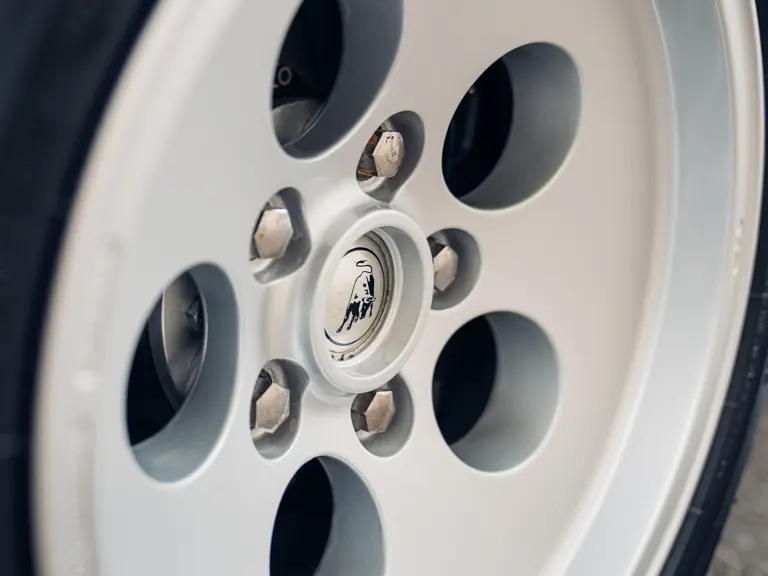
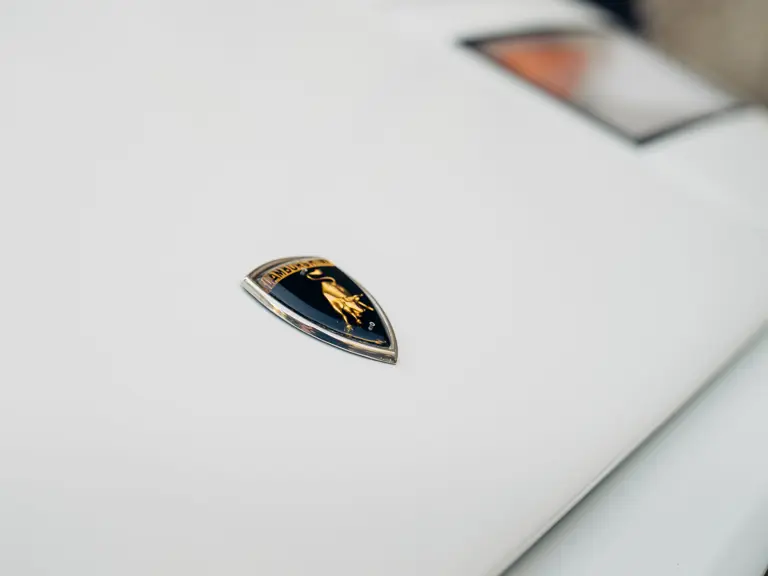
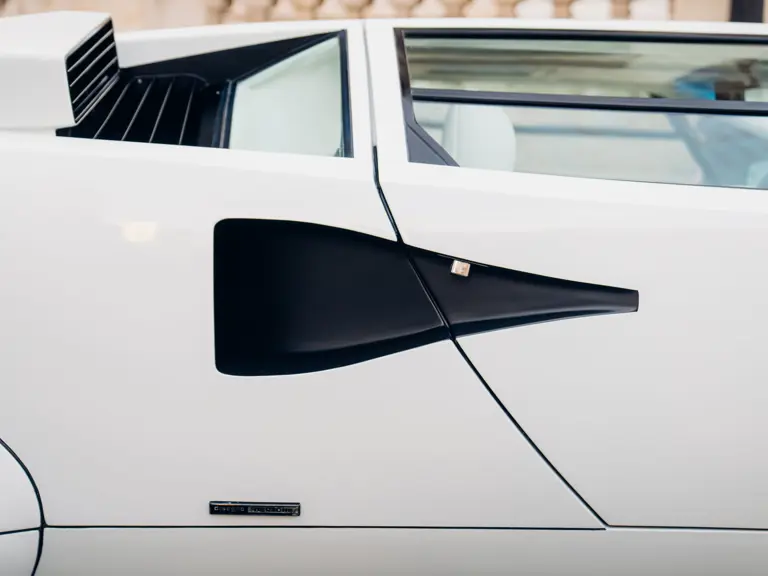
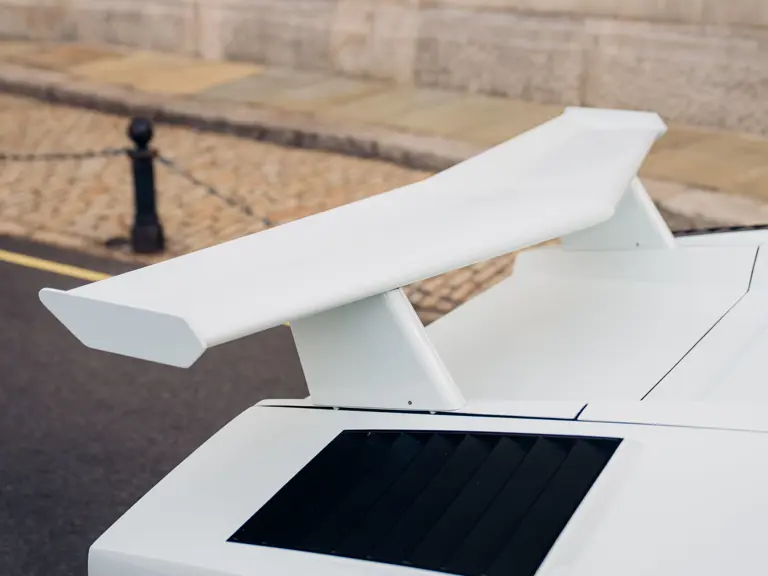
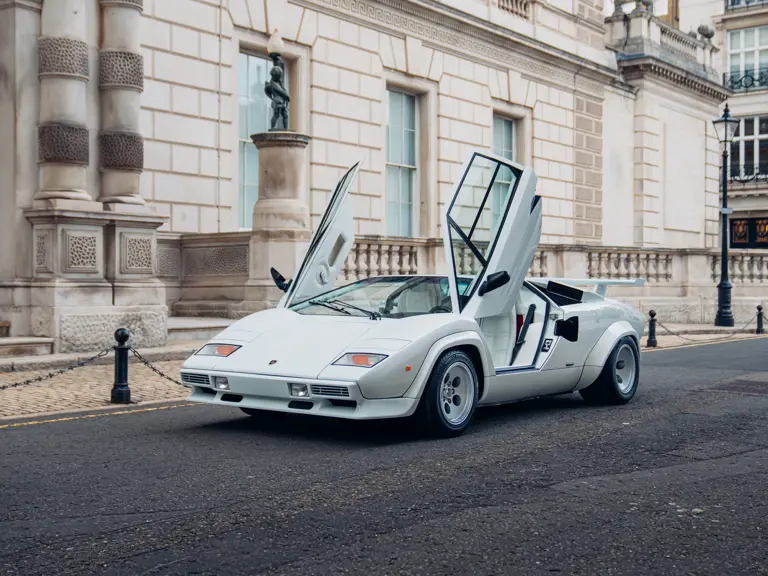
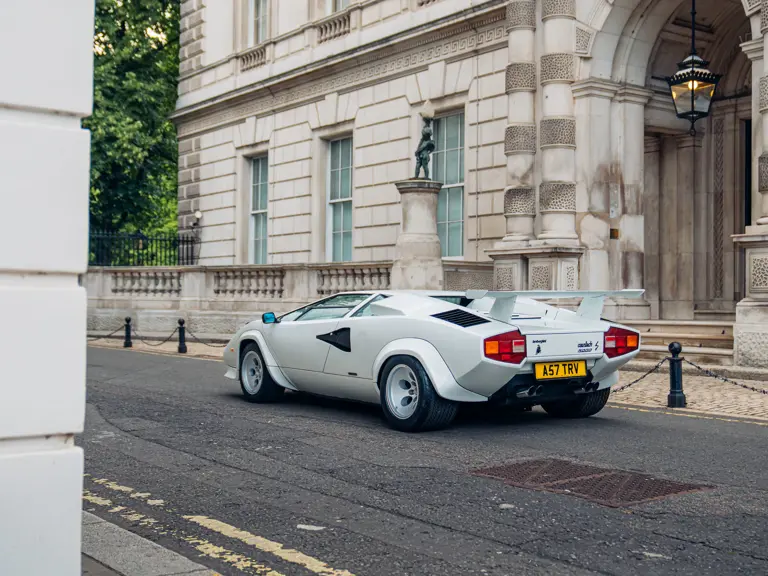
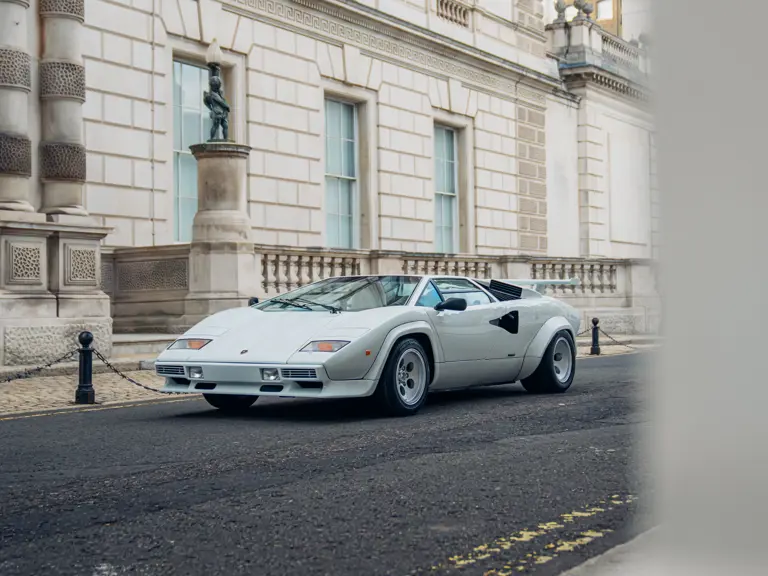

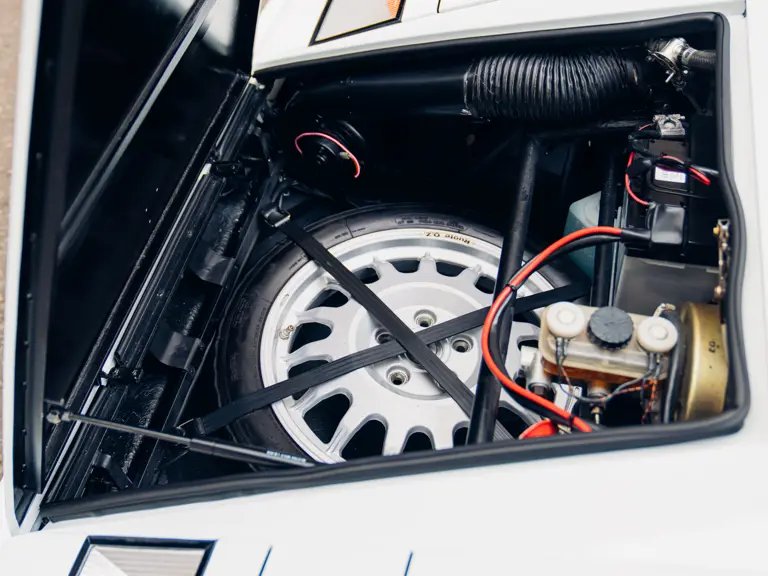
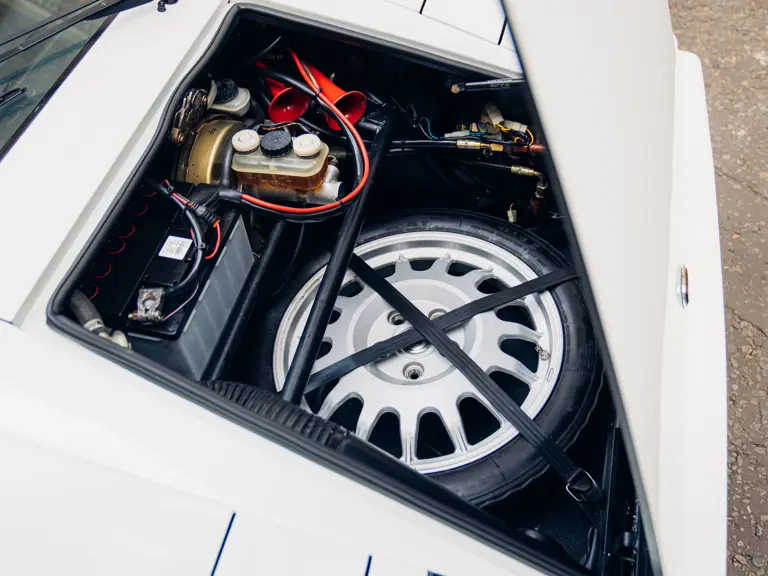
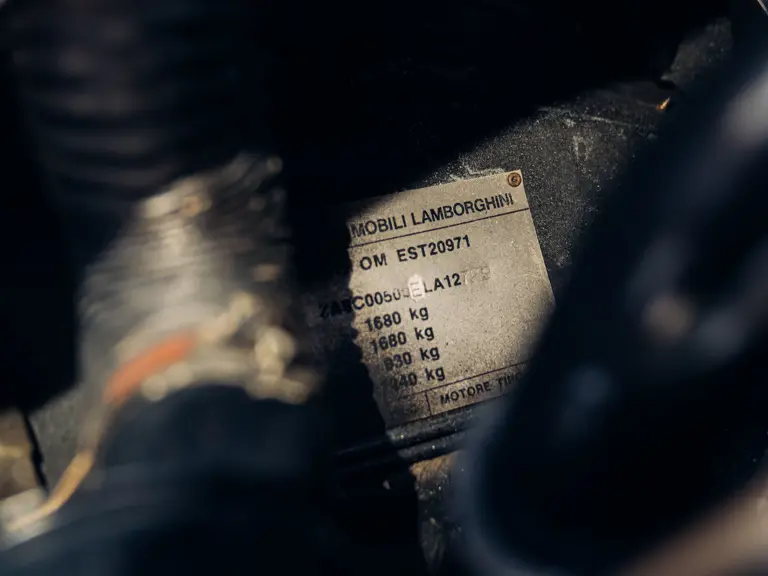
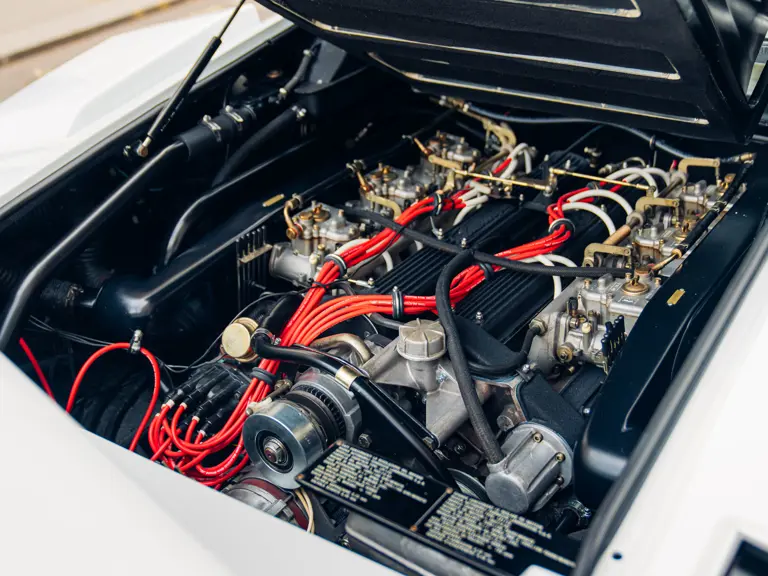
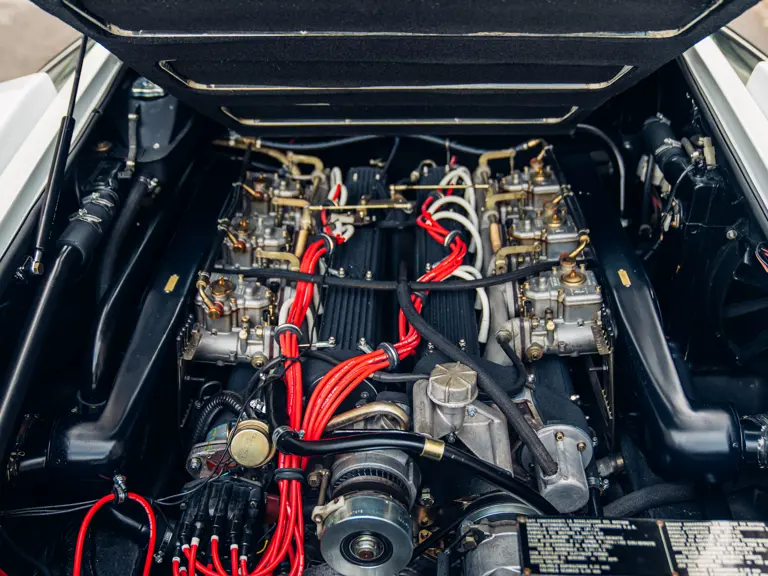
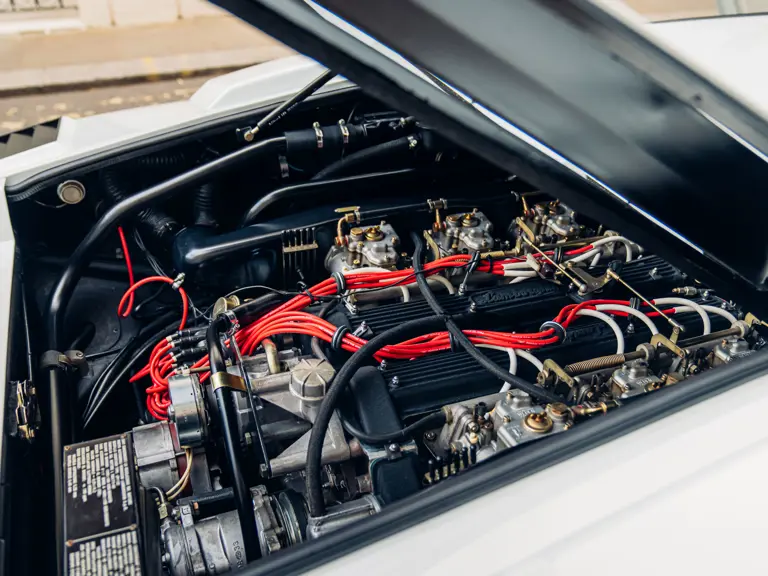
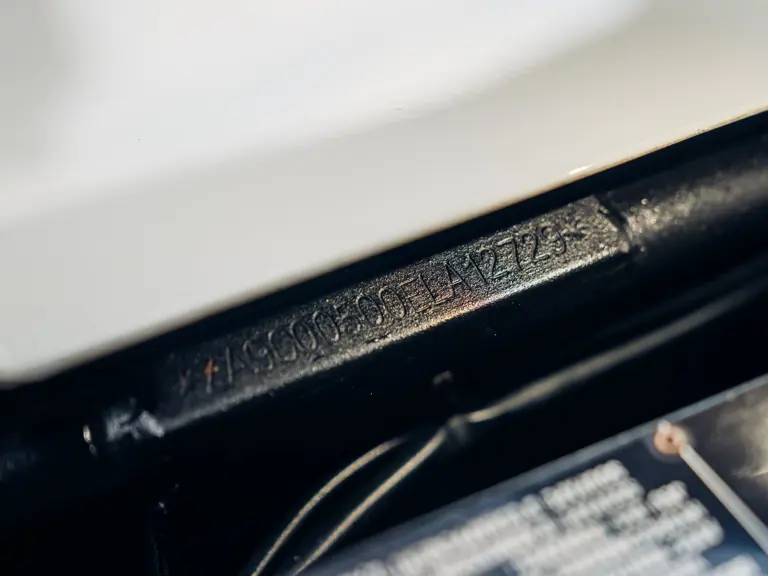
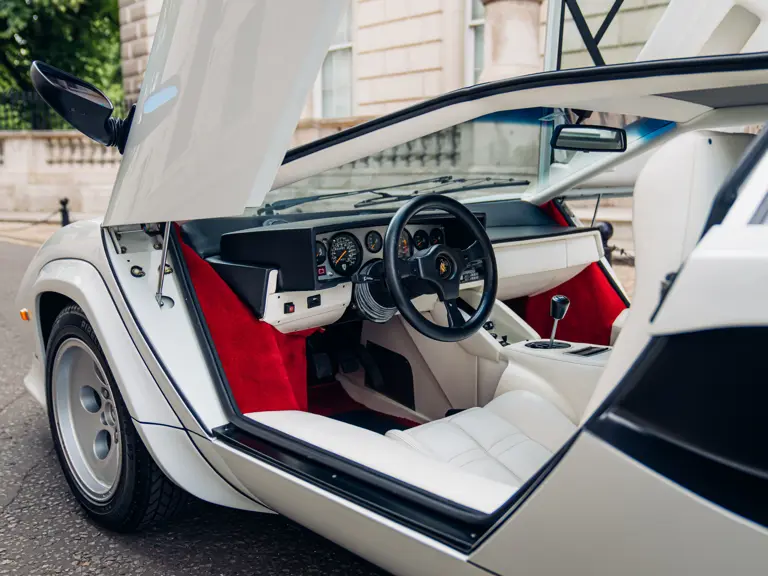
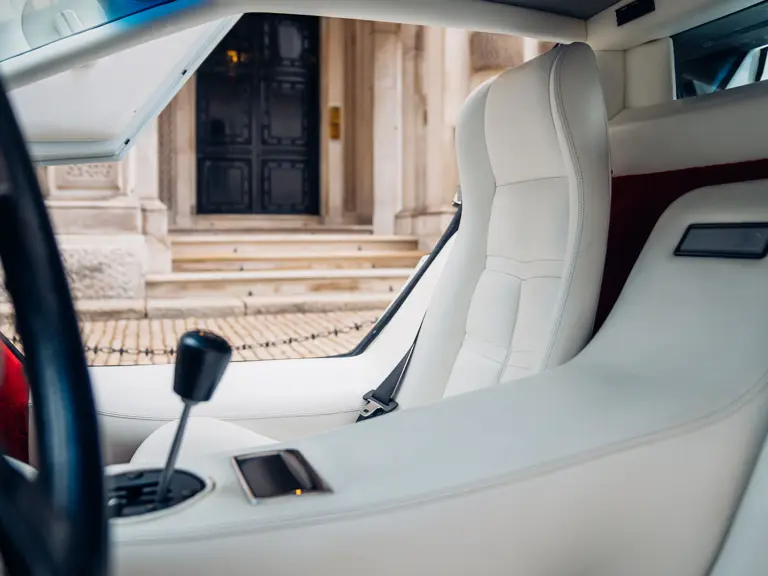
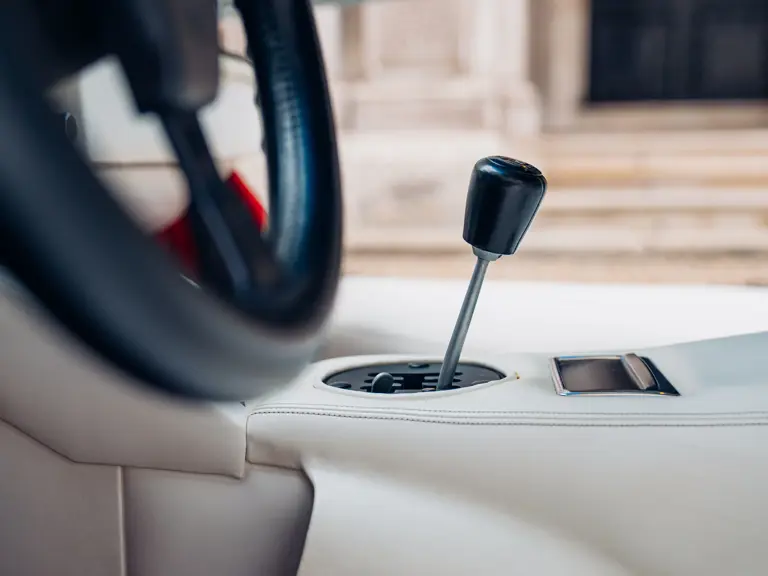
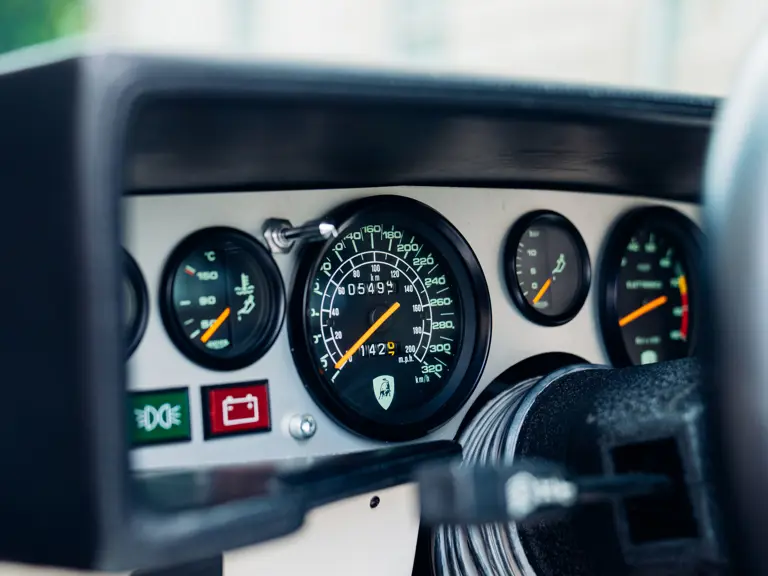

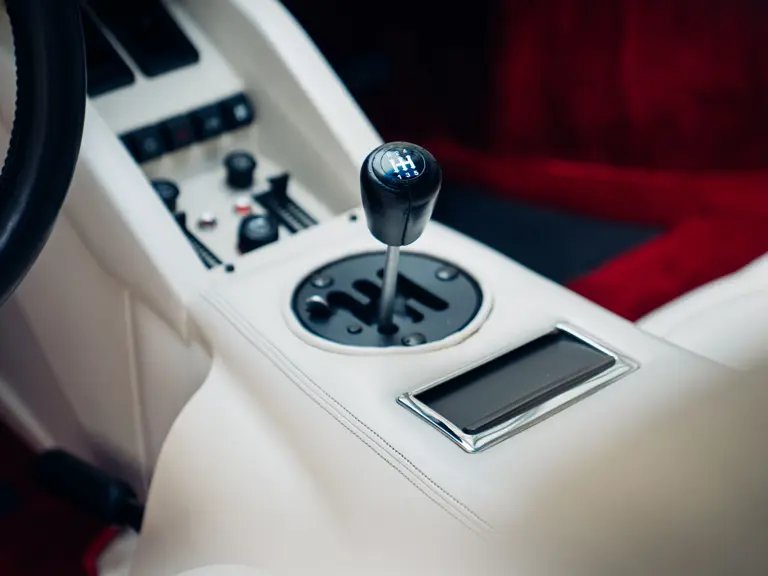
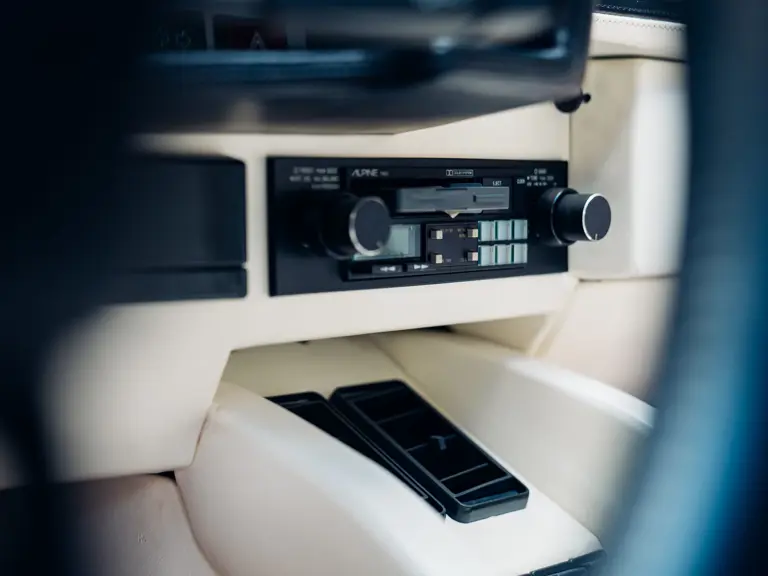
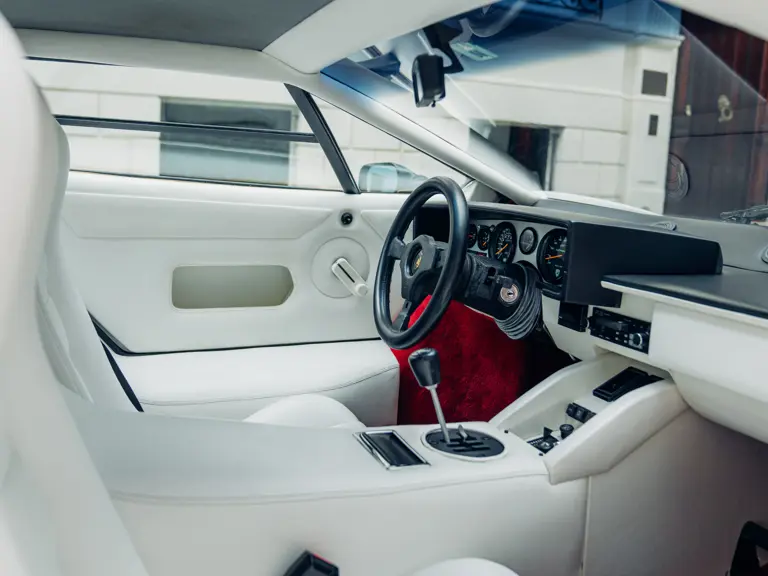
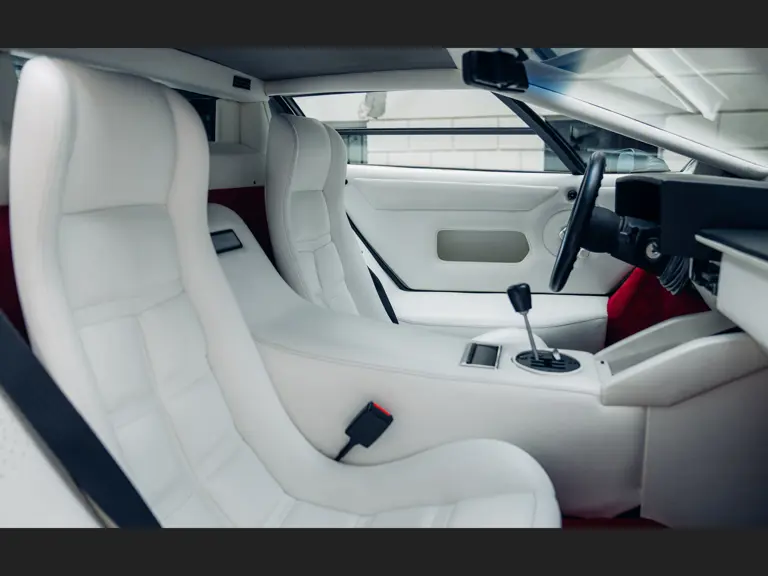
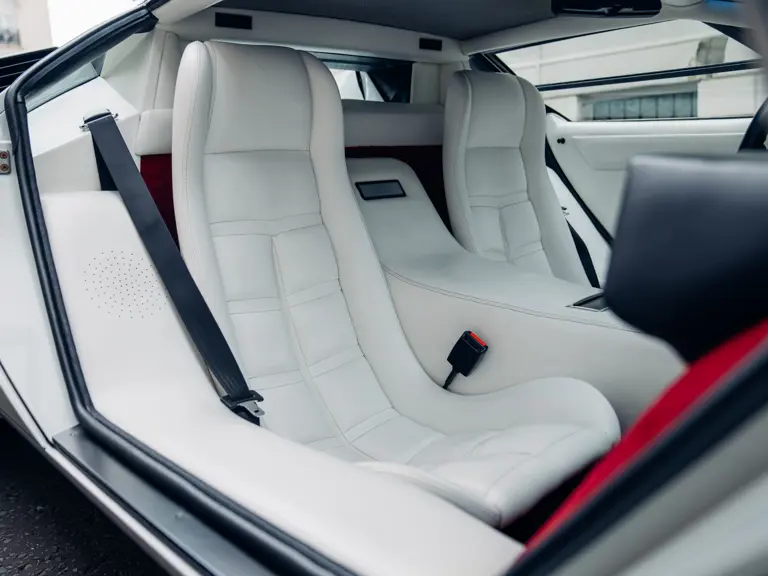
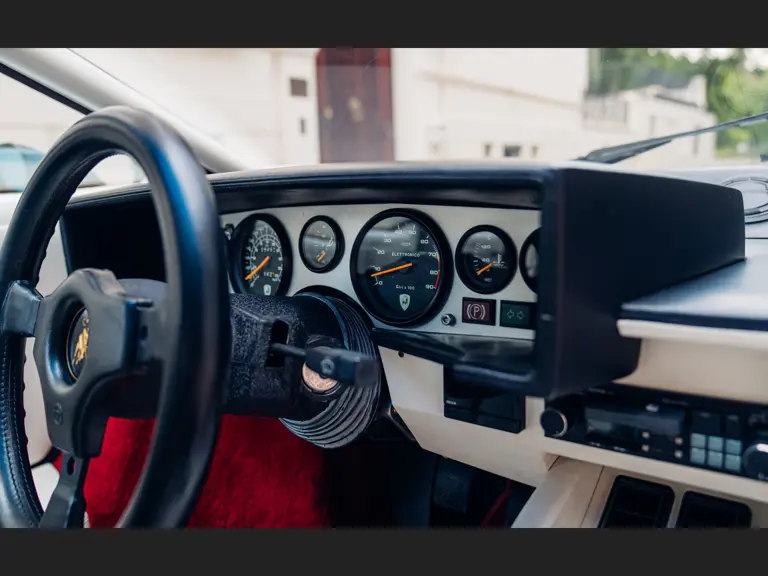
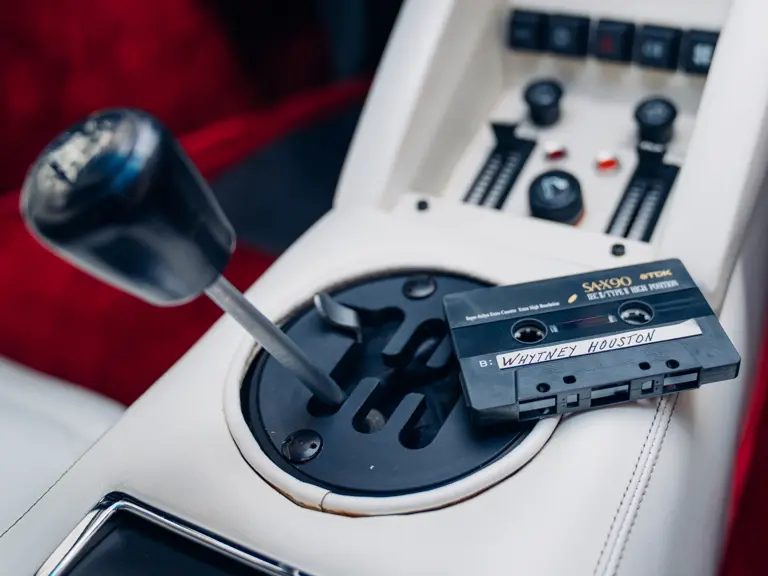
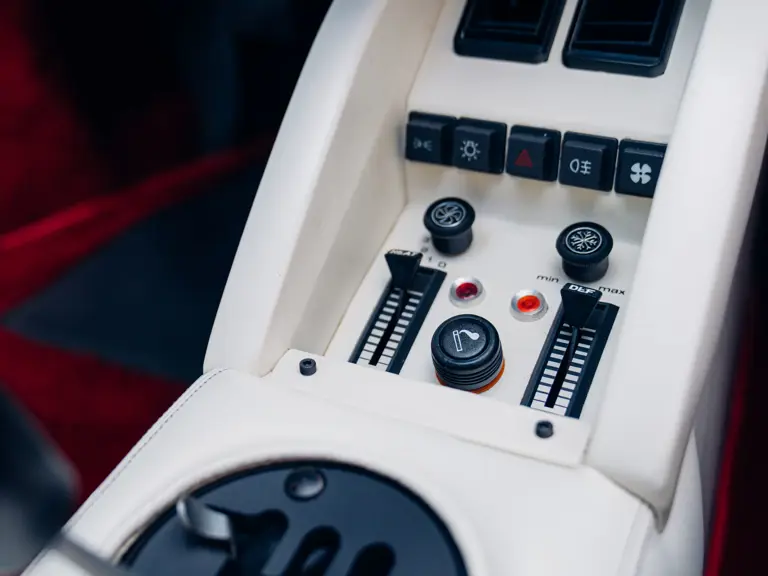
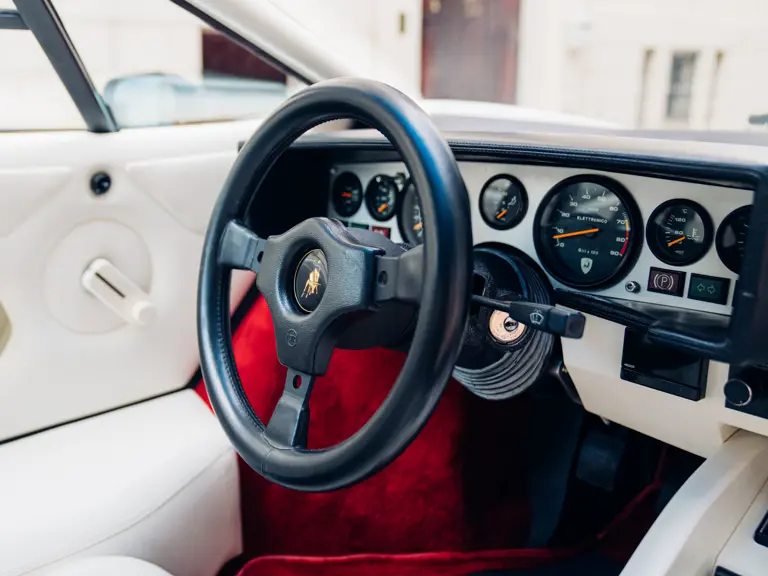
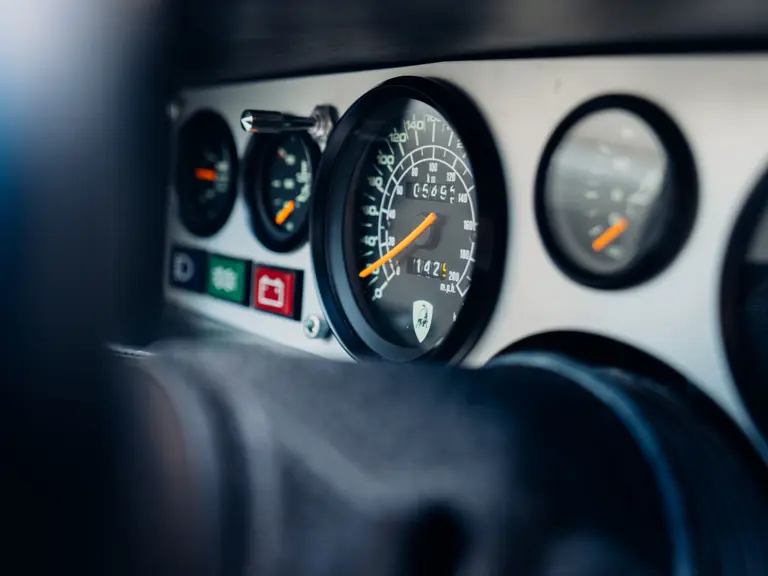
 | Monterey, California
| Monterey, California
